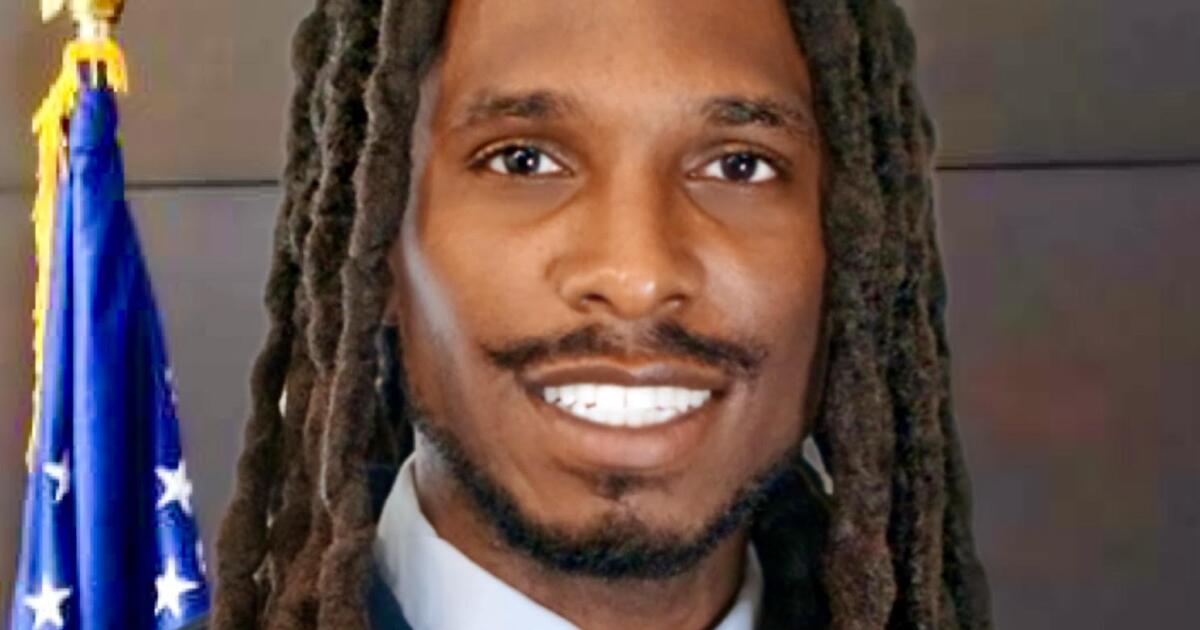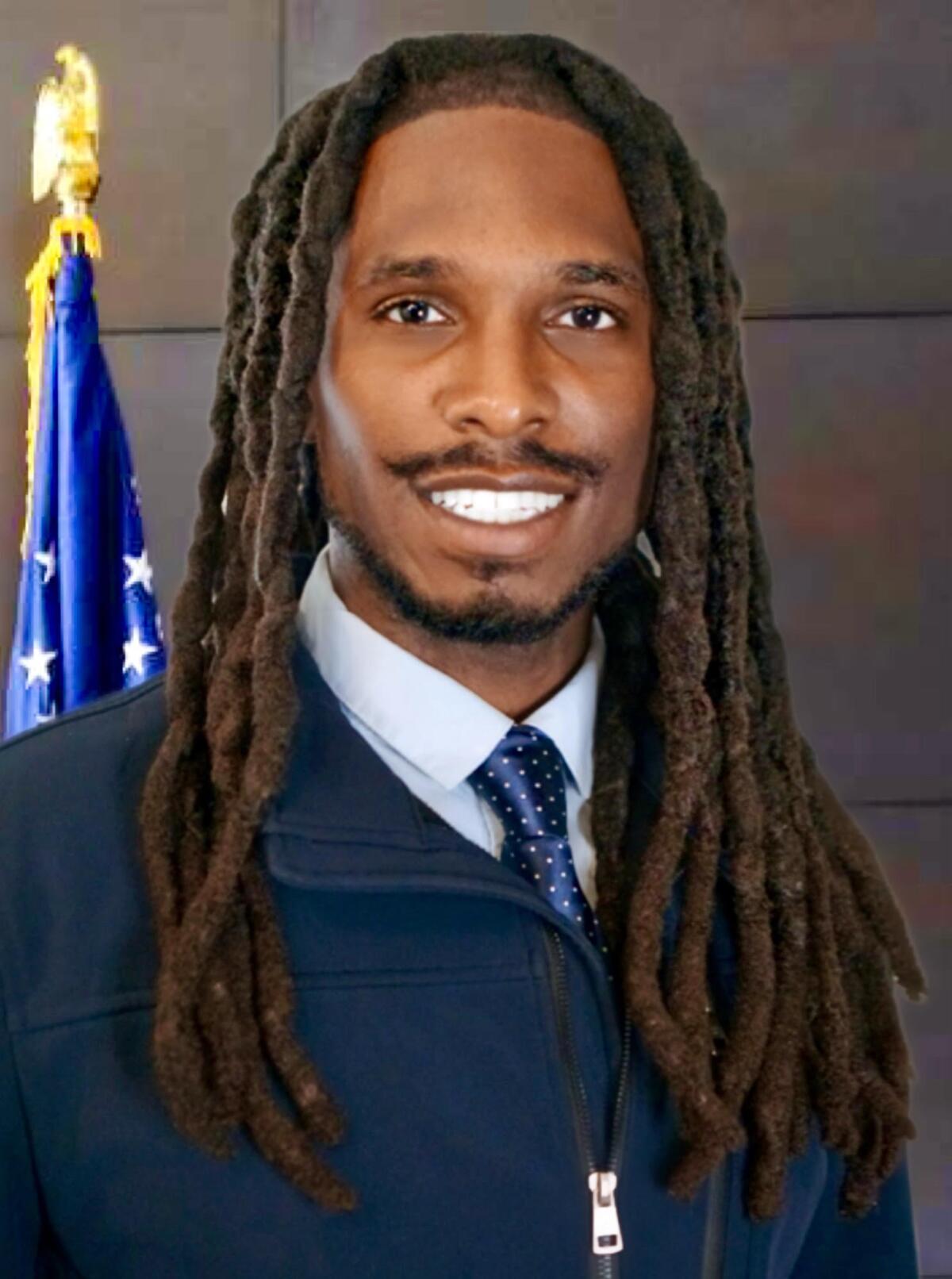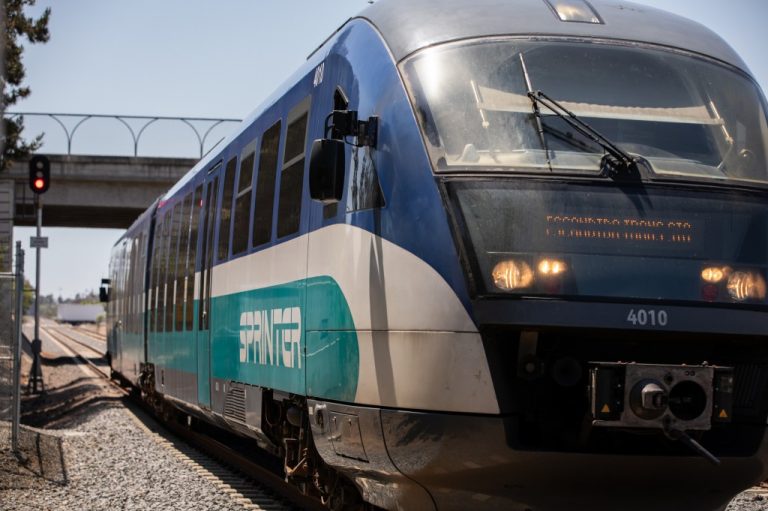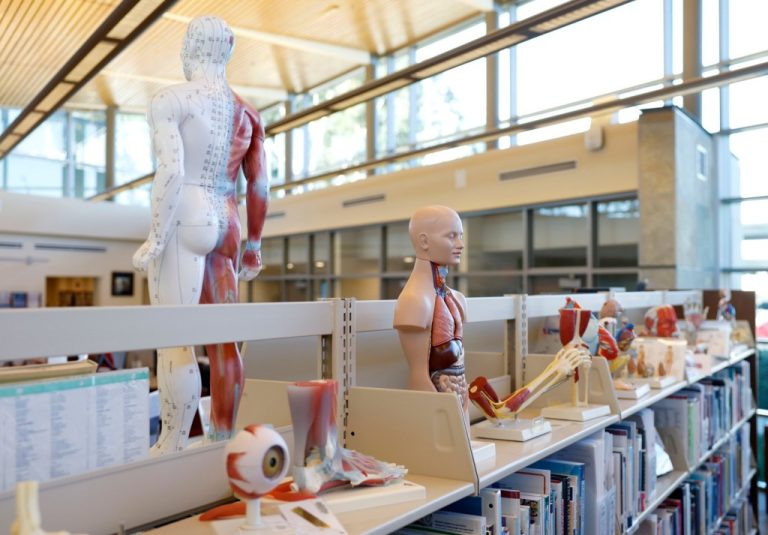
Ellis California Jones, a Republican, is challenging Councilmember Stephen Whitburn for his seat representing neighborhoods downtown and around Balboa Park.
To help inform voters, the San Diego Union-Tribune asked all the candidates a series of the same questions about their priorities, positions and campaigns. Their emailed answers have been lightly edited for clarity.
Why are you running, and what makes you the best candidate?
I’m running because the city was doing construction outside of my house at 2 in the morning, and when I called them, they brushed me off. I’m running because I’m tired of seeing homeless people smoking meth in front of tourists while the city impounds hot dog vendor carts to “restore the look and feel of many popular tourist areas.” I’m running because I’ve watched a Democratic complete majority play identity politics in order to build luxury apartments that many San Diego natives can’t afford. Lastly, I’m running because I’ve watched the City Council ignore the pleas of its residents, deciding instead to vote on behalf of their special-interest donors.

Ellis California Jones, 2024 primary candidate for San Diego City Council District 3
(Ellis California Jones for City Council 2024)
My background as an inspector and small business owner combined with my commitment to practical, inclusive solutions makes me the best candidate to address these issues head-on and hands-on, ensuring that our district’s voices are heard.
What are the top 3 issues facing this district and the city generally?
The top three issues facing our district and the city at large are homelessness, housing and infrastructure.
On homelessness, my approach is a strong but helping hand. I advocate for a triage, treatment and transition process that addresses immediate needs while providing a pathway to stability and self-sufficiency. This strategy ensures that we first manage the crisis and then actively work towards reducing homelessness with dignity and respect.
When increasing housing, we must consult with residents before development begins, ensuring that new housing projects are in harmony with the community’s needs and aesthetics. Expedited construction processes should not detract from our quality of life.
Regarding infrastructure improvements, I propose to eliminate lowballing in the request for proposal (RFP) process, which ultimately costs taxpayers more in the long run. Additionally, we must protect existing infrastructure, such as parking, from being compromised by developers’ interests tied to campaign contributions.
What are the first 3 things you would do in office if elected?
Upon taking office, my immediate actions would focus on:
1. Conducting a thorough audit of existing systems and services to identify inefficiencies and areas for enhancement. This step is crucial for understanding the current state of our city’s operations and setting a benchmark for progress.
2. Implement a grassroots approach for all new ordinances, ideas, and issues, ensuring they originate from community groups. This process will empower residents, placing their needs and opinions at the forefront of city governance. By doing so, special interests will have to earn community approval before any project is considered by the City Council, reversing the current top-down approach.
3. Prioritize the repair, cleanup and maintenance of streets and public facilities within District 3. Improving our local infrastructure is essential for safety, accessibility and the overall quality of life for our residents. This action will include proposing a citywide ban on homeless encampments.
Do you support a 1-cent city sales tax increase? Why or why not?
No. I don’t support any new taxes until 2030 at the least. We just had a record-breaking year in 2023 when it came to revenue. We need to elect candidates who don’t spend our tax money like kids inheriting a trust fund.
What should the city do to combat its housing crisis? Do you support the city’s controversial Complete Communities developer incentive program?
The city needs to encourage developers to work with neighborhoods to guarantee their existing infrastructure and quality of life are not diminished after new developments.
There’s nothing holistic about Complete Communities. But there are holes. The plan was sold to us as a way to incentivize developers into including affordable housing units. Now the plan allows developers to pay a fee to exclude affordable units and build them off-site. What is “complete” about that?
How should public safety and civil liberties be balanced when it comes to homelessness enforcement, behavioral health policy and police surveillance?
You guys are asking a question about homeless enforcement, mental health and streetlight cameras but have only given us 100 words to answer. When candidates prepare for short statements and sound bites, that’s what we end up getting in forms of policy — shortcuts and Band-Aid enforcement.
Homelessness: We need a citywide ban on encampments.
Behavioral health: Look into implementing SB 43, which would compel our vulnerable to get the help we are providing.
Police surveillance: Lazy or ineffective policing shouldn’t lead to less privacy. It’s like a security guard watching a camera all day instead of doing his rounds.
Recent flooding has brought new attention to failures of city infrastructure, and how the effects of climate change can disproportionately impact poorer neighborhoods and communities of color. How should the city combat this? And do you support raising the city’s stormwater fee or a similar tax?
Once again the mayor, City Council and a few local grifters and lawyers are going to use people of color like me to force taxes on the rest of y’all. Please stop falling for this. It’s getting old.
The stormwater situation was preventable. Our leadership barely had a real job and spends too much time with donors and not in the communities they serve.
I’ll get the required certifications, if needed, and spend time riding with our city workers in order to see where we are wasting funds. We need hands-on management of our tax dollars at work, not more taxes.
The city faces a big budget crunch, along with a nearly $5 billion infrastructure funding shortfall. What services should be cut, where should more revenue be sought, and what else should the city do?
To address the budget and infrastructure challenges, the city should first review consulting fees as well as bring external contracts in-house. We also need to renegotiate contracts, particularly our IT services. Reviewing capital expenditures and administrative overheads is also a must.
We waste a lot of money by not optimizing our vehicle fleet. Reassessing employee benefits can also reduce costs. Another thing we can do is focus on high-return technology investments that will aid in balancing the budget.
Lastly, I think the city needs to do a better job at creating strategic partnerships that leverage doing business in San Diego.





